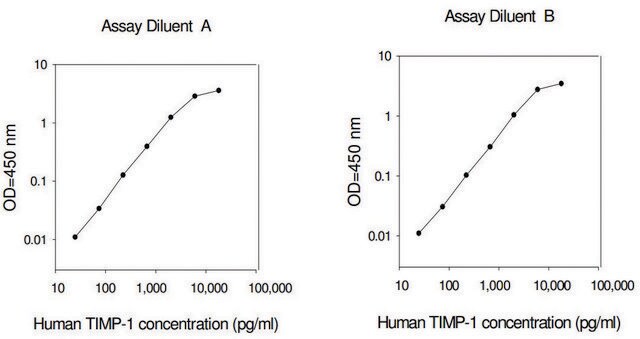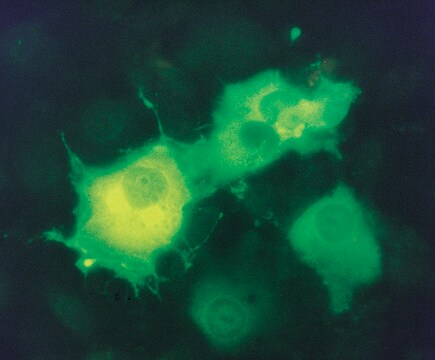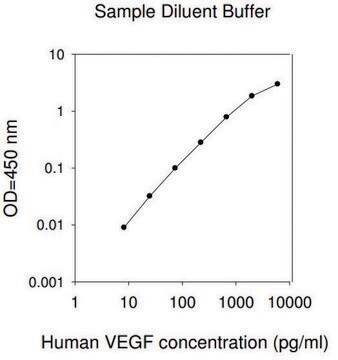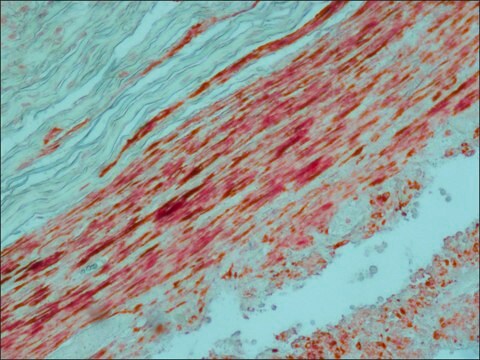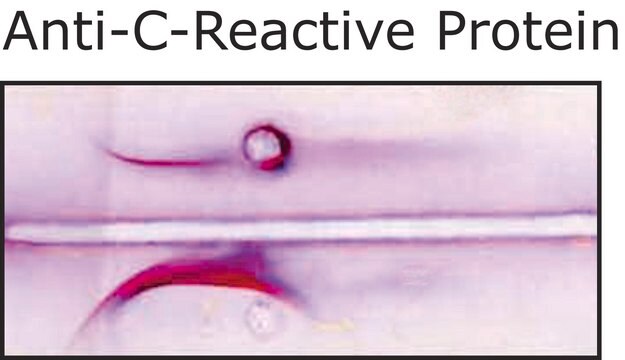推薦產品
生物源
human
品質等級
重組細胞
expressed in E. coli
化驗
≥95% (SDS-PAGE)
形狀
lyophilized powder
效力
0.1000 μg/mL
分子量
apparent mol wt 8.7 kDa by SDS-PAGE (reducing)
包裝
pkg of 25 μg
儲存條件
avoid repeated freeze/thaw cycles (Do not store in a frost-free freezer.)
技術
cell culture | mammalian: suitable
雜質
endotoxin, tested
UniProt登錄號
儲存溫度
−20°C
基因資訊
human ... CXCL13(10563)
相關類別
生化/生理作用
BCA-1 is a potent chemoattractant for B lymphocytes, but not T lymphocytes, monocytes, or neutrophils.
BCA-1 is a potent chemoattractant for B lymphocytes, but not T lymphocytes, monocytes, or neutrophils. Its specific receptor BLR1 is a G protein-coupled receptor originally isolated from Burkitt′s lymphoma cells. Among cells of the hematopoietic lineages, the expression of BRL1, now designated CXCR5, is restricted to B lymphocytes and a subpopulation of T helper memory cells.
The biological activity of human BLC/BCA-1 is measured by its ability to chemoattract mouse BaF/3 cells transfected with human CXCR5.
外觀
Lyophilized from a 0.2 μm filtered solution in 35% acetonitrile and 0.1% TFA containing 50 μg bovine serum albumin per 1 μg of cytokine.
訊號詞
Warning
危險聲明
危險分類
Acute Tox. 4 Inhalation - Acute Tox. 4 Oral - Eye Irrit. 2
儲存類別代碼
11 - Combustible Solids
水污染物質分類(WGK)
WGK 3
閃點(°F)
Not applicable
閃點(°C)
Not applicable
分析證明 (COA)
輸入產品批次/批號來搜索 分析證明 (COA)。在產品’s標籤上找到批次和批號,寫有 ‘Lot’或‘Batch’.。
Julia Miriam Weiss et al.
Oncotarget, 7(7), 7550-7562 (2016-01-16)
Abnormal overexpression of CXCL13 is observed in many inflamed tissues and in particular in autoimmune diseases. Myasthenia gravis (MG) is a neuromuscular disease mainly mediated by anti-acetylcholine receptor autoantibodies. Thymic hyperplasia characterized by ectopic germinal centers (GCs) is a common
D F Legler et al.
The Journal of experimental medicine, 187(4), 655-660 (1998-03-28)
Although most leukocytes, T lymphocytes in particular, respond to several different chemokines, there is virtually no information on chemokine activities and chemokine receptors in B lymphocytes. A putative chemokine receptor, BLR1, that is expressed in Burkitt's lymphoma cells and B
R Förster et al.
Cell, 87(6), 1037-1047 (1996-12-13)
We describe the phenotype of gene-targeted mice lacking the putative chemokine receptor BLR1. In normal mice, this receptor is expressed on mature B cells and a subpopulation of T helper cells. Blr1 mutant mice lack inguinal lymph nodes and possess
M D Gunn et al.
Nature, 391(6669), 799-803 (1998-03-05)
Secondary lymphoid organs (spleen, lymph nodes and Peyer's patches) are divided into compartments, such as B-cell zones (follicles) and T-cell zones, which provide specialized environments for specific steps of the immune response. Migration of lymphocyte subsets into these compartments is
Chunyan Li et al.
BioMed research international, 2015, 345413-345413 (2015-07-15)
To investigate the effect of CXCL13 (C-X-C motif chemokine 13) on hepatocellular carcinoma and clarify the potential mechanisms. 32 patients with hepatocellular carcinoma and 12 healthy controls were recruited for analyzing the expression of CXCL13 by RT-PCR (reverse transcription-polymerase chain
我們的科學家團隊在所有研究領域都有豐富的經驗,包括生命科學、材料科學、化學合成、色譜、分析等.
聯絡技術服務
